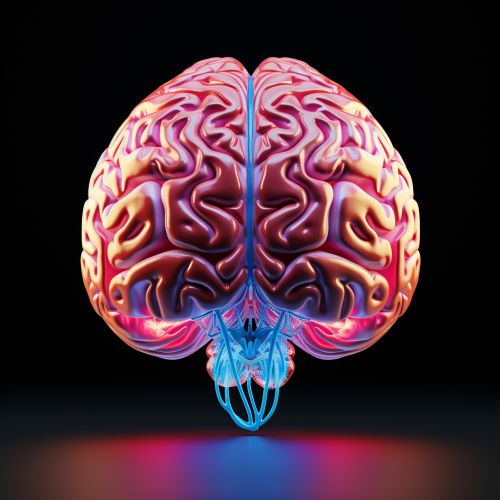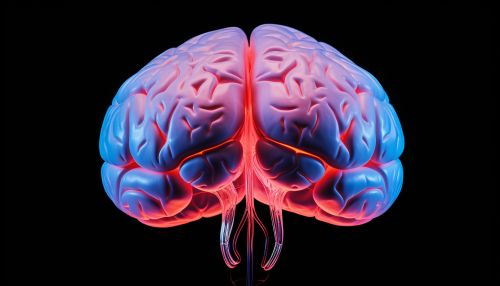Frontal lobe syndrome
Overview
The frontal lobe is one of the four major lobes of the cerebral cortex in the mammalian brain, located at the front of each cerebral hemisphere. Frontal lobe syndrome is a term used to describe a range of cognitive, behavioral, and emotional difficulties often associated with damage to the frontal lobes. This syndrome can result from various causes, including traumatic brain injury, stroke, tumor, or neurodegenerative diseases such as Alzheimer's or Parkinson's.


Anatomy of the Frontal Lobe
The frontal lobe is the largest of the four major lobes of the brain in mammals, and it is located at the front of each hemisphere. It is separated from the parietal lobe by the central sulcus, and from the temporal lobe by the lateral sulcus. Its cingulate sulcus separates it from the limbic lobe.
Functions of the Frontal Lobe
The frontal lobe plays a key role in a variety of cognitive functions, including attention, decision making, and planning, as well as motor function, problem solving, spontaneity, memory, language, initiation, judgement, impulse control, and social and sexual behavior. The frontal lobe is also home to the primary motor cortex which is important for executing voluntary movements.
Frontal Lobe Syndrome
Frontal lobe syndrome can be characterized by a variety of symptoms, depending on the extent and location of damage. These symptoms can include, but are not limited to, drastic changes in social behavior and personality, inability to concentrate, difficulty in problem-solving, and aphasia, which is a disorder that affects a person's ability to communicate.
Causes of Frontal Lobe Syndrome
Frontal lobe syndrome can result from various causes, including traumatic brain injury, stroke, tumor, or neurodegenerative diseases such as Alzheimer's or Parkinson's. Other causes can include infections, such as encephalitis or meningitis, and certain psychiatric disorders.
Diagnosis of Frontal Lobe Syndrome
Diagnosis of frontal lobe syndrome is typically made through a combination of clinical examination, patient history, and neuroimaging techniques such as MRI or CT scans. Neuropsychological testing can also be used to assess cognitive function and identify specific areas of impairment.
Treatment and Management of Frontal Lobe Syndrome
Treatment for frontal lobe syndrome is largely dependent on the cause. This can include medication, surgery, cognitive rehabilitation therapy, or a combination of these. The goal of treatment is to manage symptoms and improve the individual's ability to function in daily life.
Prognosis of Frontal Lobe Syndrome
The prognosis for individuals with frontal lobe syndrome can vary greatly, depending on the cause and severity of the condition. Some individuals may see improvement with treatment, while others may have lasting impairments.
